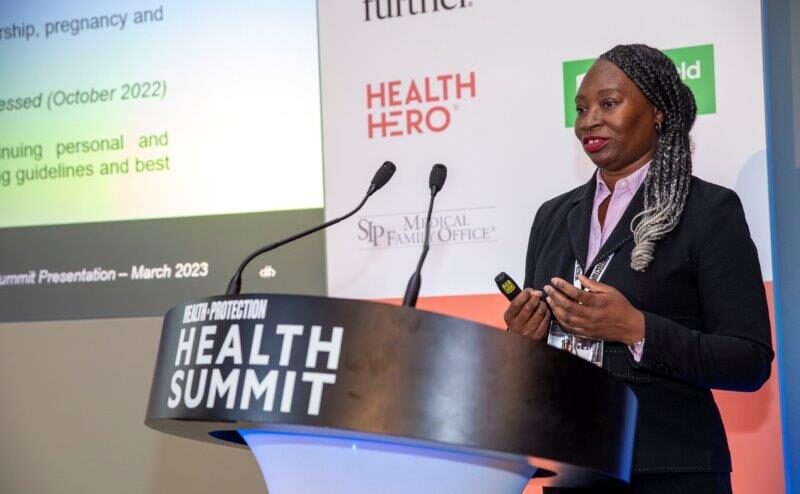Fostering diverse workforces is not just a nice thing to do as it can have a significant impact on an advice firm’s reputation and employee retention rates improving its bottom line, with typical recruitment processes costing firms around £20,000.
Vivine Cameron, equality, diversity and inclusion manager at the Chartered Insurance Institute (CII), told delegates at Health & Protection’s Health Summit that while diverse workplaces were a good thing to do as well ensuring firms complied with business law and professional standards, they also improved the reputation of the business.
“If you have advocates that look different and employees can see they look different, then they are more likely to apply,” Cameron (pictured) explained.
“If you see customers that look different to the masses and they see that you employ people that look like them, they’re more like to do business with you – which then leads on to increased profit, a wider pool of clientele, higher employee engagement.”
But Cameron added diverse workplaces also reduced employee turnover.
“If I feel like I belong. If feel like I’m being heard. If I’m being developed and progressed regardless of my background, I’m more likely to stay which will reduce attrition rates,” Cameron continued.
“At last count, it’s about £20,000 to recruit someone. But if you are retaining people because they feel like they belong, regardless of that protected characteristic group, then inclusion not only means protected characteristics, it’s whatever people need.
“Are we adapting? Are we flexible enough in that respect?”
‘Night and day’
And reflecting on her experience at the CII, Cameron added that the difference at her own organisation between five years ago and today was “night and day”.
“It was predominantly a white and male organisation. It’s a very different organisation five years later,” she continued.
“There are more women. There are more people with different ethnicities, and I know this because I look at the data.
“There are people from different protected characteristic backgrounds, which demonstrates that as a professional body and a global professional body, we reflect the members that we serve and we reflect the charge that we have to build public trust in the profession.
“We need to be representative as a professional body because we represent so many different people around the world so let’s look at it from that perspective,” Cameron concluded.
